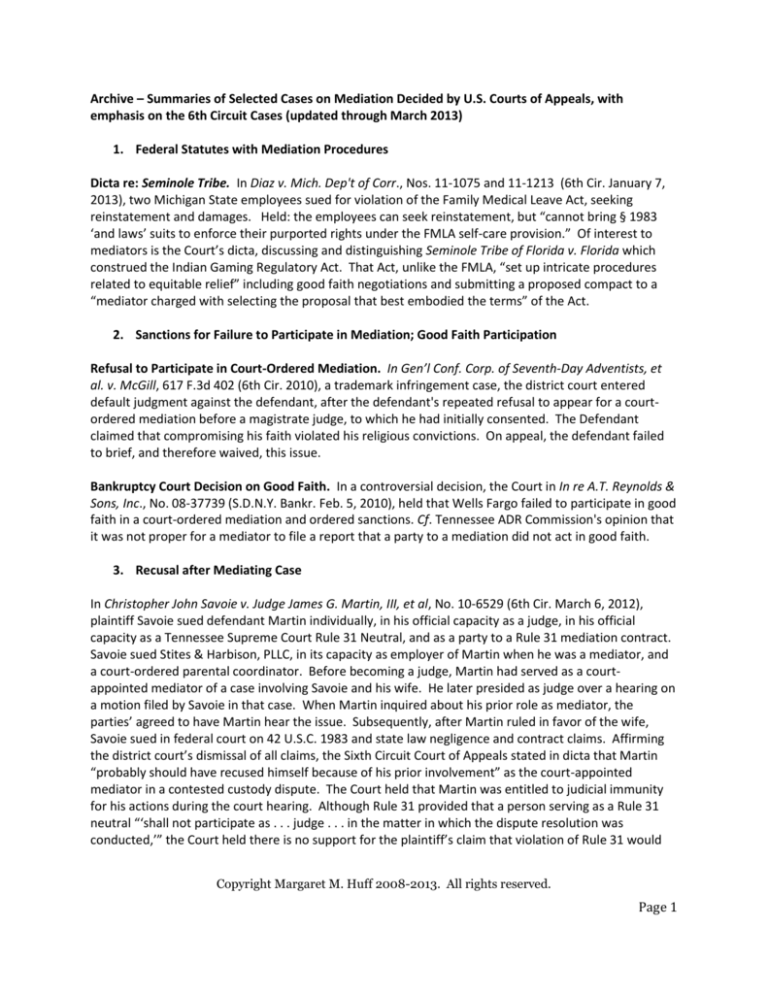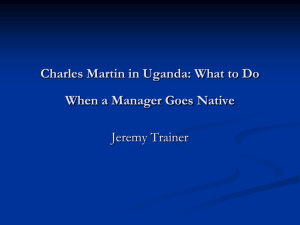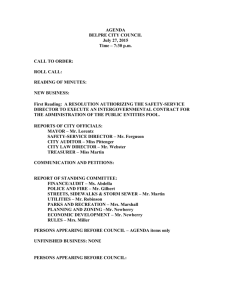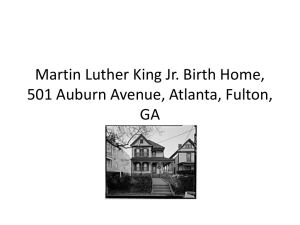
Archive – Summaries of Selected Cases on Mediation Decided by U.S. Courts of Appeals, with
emphasis on the 6th Circuit Cases (updated through March 2013)
1. Federal Statutes with Mediation Procedures
Dicta re: Seminole Tribe. In Diaz v. Mich. Dep't of Corr., Nos. 11-1075 and 11-1213 (6th Cir. January 7,
2013), two Michigan State employees sued for violation of the Family Medical Leave Act, seeking
reinstatement and damages. Held: the employees can seek reinstatement, but “cannot bring § 1983
‘and laws’ suits to enforce their purported rights under the FMLA self-care provision.” Of interest to
mediators is the Court’s dicta, discussing and distinguishing Seminole Tribe of Florida v. Florida which
construed the Indian Gaming Regulatory Act. That Act, unlike the FMLA, “set up intricate procedures
related to equitable relief” including good faith negotiations and submitting a proposed compact to a
“mediator charged with selecting the proposal that best embodied the terms” of the Act.
2. Sanctions for Failure to Participate in Mediation; Good Faith Participation
Refusal to Participate in Court-Ordered Mediation. In Gen’l Conf. Corp. of Seventh-Day Adventists, et
al. v. McGill, 617 F.3d 402 (6th Cir. 2010), a trademark infringement case, the district court entered
default judgment against the defendant, after the defendant's repeated refusal to appear for a courtordered mediation before a magistrate judge, to which he had initially consented. The Defendant
claimed that compromising his faith violated his religious convictions. On appeal, the defendant failed
to brief, and therefore waived, this issue.
Bankruptcy Court Decision on Good Faith. In a controversial decision, the Court in In re A.T. Reynolds &
Sons, Inc., No. 08-37739 (S.D.N.Y. Bankr. Feb. 5, 2010), held that Wells Fargo failed to participate in good
faith in a court-ordered mediation and ordered sanctions. Cf. Tennessee ADR Commission's opinion that
it was not proper for a mediator to file a report that a party to a mediation did not act in good faith.
3. Recusal after Mediating Case
In Christopher John Savoie v. Judge James G. Martin, III, et al, No. 10-6529 (6th Cir. March 6, 2012),
plaintiff Savoie sued defendant Martin individually, in his official capacity as a judge, in his official
capacity as a Tennessee Supreme Court Rule 31 Neutral, and as a party to a Rule 31 mediation contract.
Savoie sued Stites & Harbison, PLLC, in its capacity as employer of Martin when he was a mediator, and
a court-ordered parental coordinator. Before becoming a judge, Martin had served as a courtappointed mediator of a case involving Savoie and his wife. He later presided as judge over a hearing on
a motion filed by Savoie in that case. When Martin inquired about his prior role as mediator, the
parties’ agreed to have Martin hear the issue. Subsequently, after Martin ruled in favor of the wife,
Savoie sued in federal court on 42 U.S.C. 1983 and state law negligence and contract claims. Affirming
the district court’s dismissal of all claims, the Sixth Circuit Court of Appeals stated in dicta that Martin
“probably should have recused himself because of his prior involvement” as the court-appointed
mediator in a contested custody dispute. The Court held that Martin was entitled to judicial immunity
for his actions during the court hearing. Although Rule 31 provided that a person serving as a Rule 31
neutral “‘shall not participate as . . . judge . . . in the matter in which the dispute resolution was
conducted,’” the Court held there is no support for the plaintiff’s claim that violation of Rule 31 would
Copyright Margaret M. Huff 2008-2013. All rights reserved.
Page 1
result in Martin losing jurisdiction as a judge. Rejecting the plaintiff’s claim that Martin relied on
confidential information learned during the mediation and became a witness in the court proceeding,
the Court found that Martin’s remarks during the hearing “served only to clarify his understanding of
the matter before him and explain his perspective to the parties,” and Martin was not acting in any nonjudicial capacity. The Court also rejected the argument that Martin’s remarks, allegedly disclosing
confidential information learned during the mediation, violated Martin’s obligations as a mediator. The
Court affirmed dismissal of the pendent state court claims because Martin was entitled to judicial
immunity on those claims as well. Regarding the 1983 claim against Stites & Harbison, the Court
rejected Savoie’s theory that the firm, as employer of an employee providing court-ordered mediation,
was analogous to a private prison which can be treated as a state actor. The Court also noted that a
defendant such as this firm cannot be held liable under 1983 under respondeat superior or vicarious
liability theories. Martin had received the training required under Rule 31; Savoie did not allege that
Martin’s law firm had any independent duty to provide additional training of Martin as a mediator.
Lastly, the district court did not abuse its discretion in dismissing Savoie’s claims for injunctive and
declaratory relief.
Copyright Margaret M. Huff 2008-2013. All rights reserved.
Page 2











